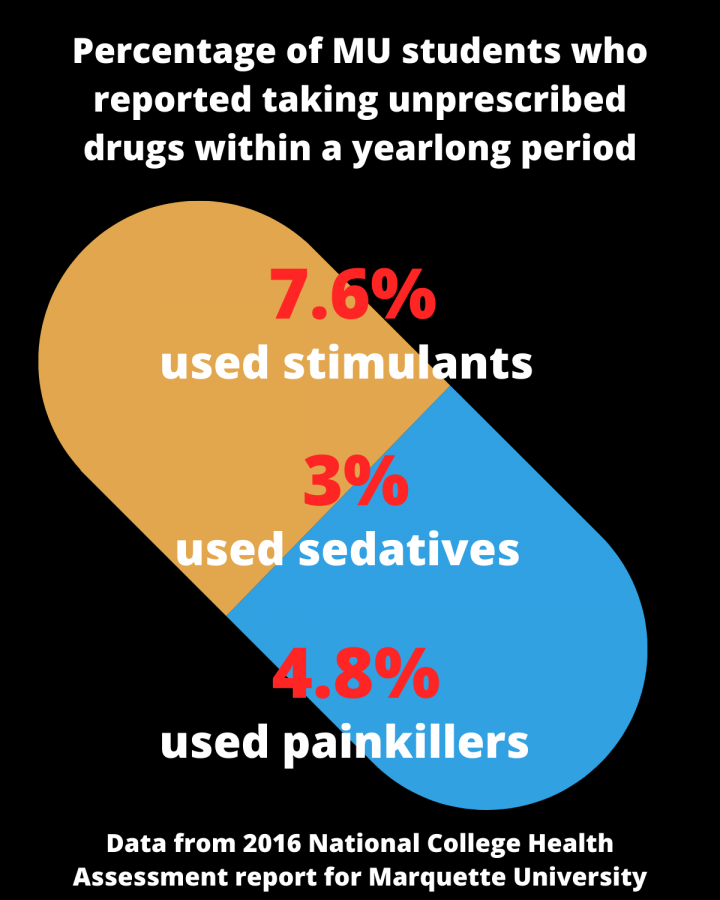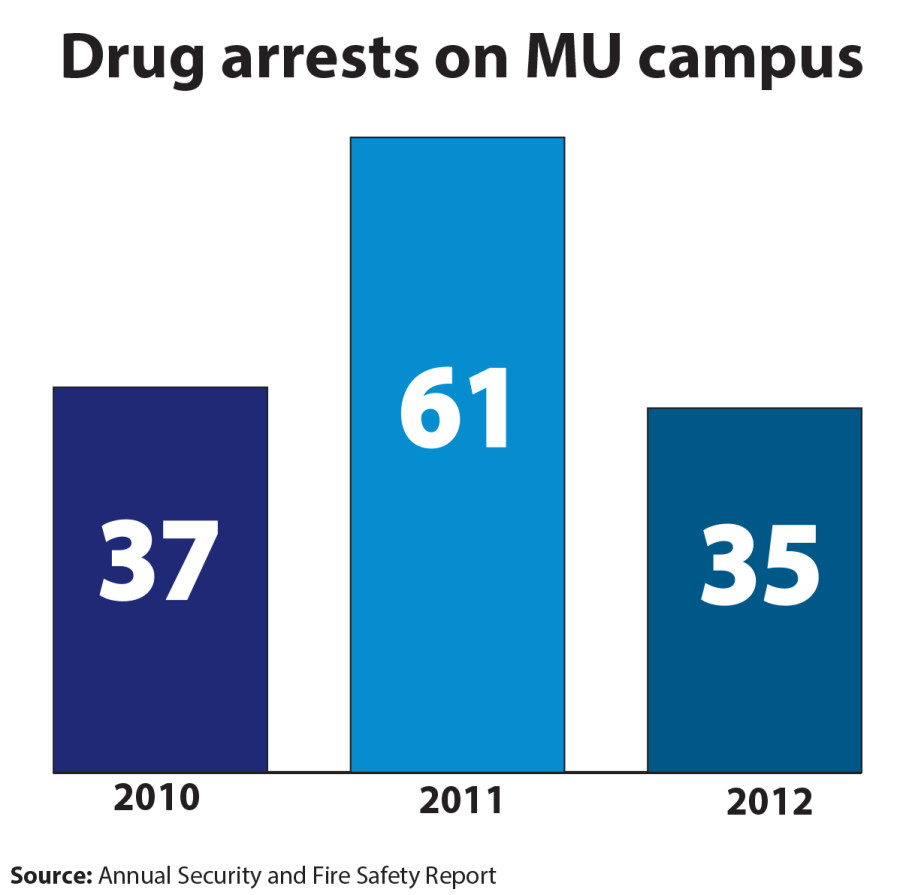For some students, they’re just another way to improve focus for a test, no different than caffeine. But using drugs like Ritalin and Adderall for non-medical purposes can pose significant risks.
Connecticut’s Wesleyan University banned the use of “study drugs” this semester on the grounds that they provide an unfair advantage over other students, and thereby breach the university’s honor code. Marquette, like many other schools, simply bans the use of prescription drugs for non-medical purposes. Ritalin and Adderall, medically, are for treatment of ADHD.
“If you are using someone else’s prescription or selling prescription drugs, that would be a violation of the university drug policy,” said Erin Lazzar, the assistant dean of students at Marquette.
Because Ritalin and Adderall are considered controlled substances, their sale or use without a prescription is also illegal, with penalties based on the amounts, including fines from $25,000 up to $100,000 and possible jail time.
According to the U.S. Drug Enforcement Administration, punishments can be doubled if the crime is committed within 1,000 feet of a university. However, courts in Indiana and Wisconsin ruled that colleges and universities are not “schools” for purposes of their respective drug-free school zone statutes, while courts in Florida, Indiana and Massachusetts excluded pre-schools from their definitions.
But, according to data from the 2006 and 2007 National Surveys on Drug Use and Health, 6.4 percent of full-time college students aged 18 to 22 had used Adderall non-medically in the past year. Only 3 percent of non-full-time students 18 to 22 did so.
Still, those who used Adderall non-medically were eight times more likely to have used cocaine in the last year, nearly three times more likely to have used marijuana and twice as likely to be binge alcohol drinkers.
John Mantsch, a professor in Marquette’s department of biomedical sciences, said the similarities between study drugs and cocaine could be a cause of the correlation. Mantsch studies the connections between stress and cocaine addiction, and he said both cocaine and study drugs can cause rises in chemicals in the brain that result in a sense of euphoria or high.
“Those drugs, when used repeatedly, change the way your brain functions,” Mantsch said. “(A study drug) usually doesn’t produce the same acute rise that cocaine does. However, there are still increases. It might take longer, it might be to a lesser degree, but there’s still the possibility of those changes.”
Jodi Blahnik, the ADHD treatment coordinator at Marquette’s Counseling Center, said it’s important to remember that study drugs can’t actually replace studying.
“These medications are not ‘homing devices’ to the library,” Blahnik said in an e-mail. “In order to become a better student, making changes to one’s study habits is necessary.”
Some students say stress may contribute to the problem.
“I can see why people would do it,” said David Hullinger, a freshman in the College of Arts & Sciences. “There’s a lot of pressure to succeed, and people use different strategies to deal with the pressure.”
Blahnik said Marquette’s Counseling Center tries to limit the use of study drugs as much as possible.
“At a minimum, students must complete a thorough ADHD screening protocol prior to considering a referral to the psychiatrist to discuss medication,” she said. “If results of this screening are unclear, students are referred to community providers for additional assessment and, possibly, cognitive testing.”
But Blahnik stressed counseling should always be the first option for those experiencing difficulties.
“When students come to the Counseling Center with academic or concentration difficulties, it is recommended that they work in counseling to make behavioral changes such as improving time management, as well as study and test-taking skills,” she said.




